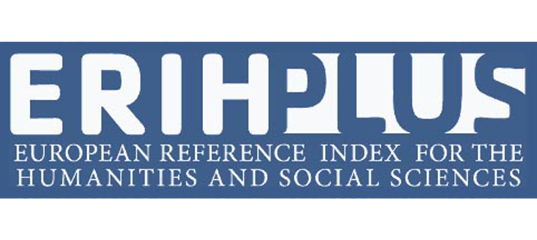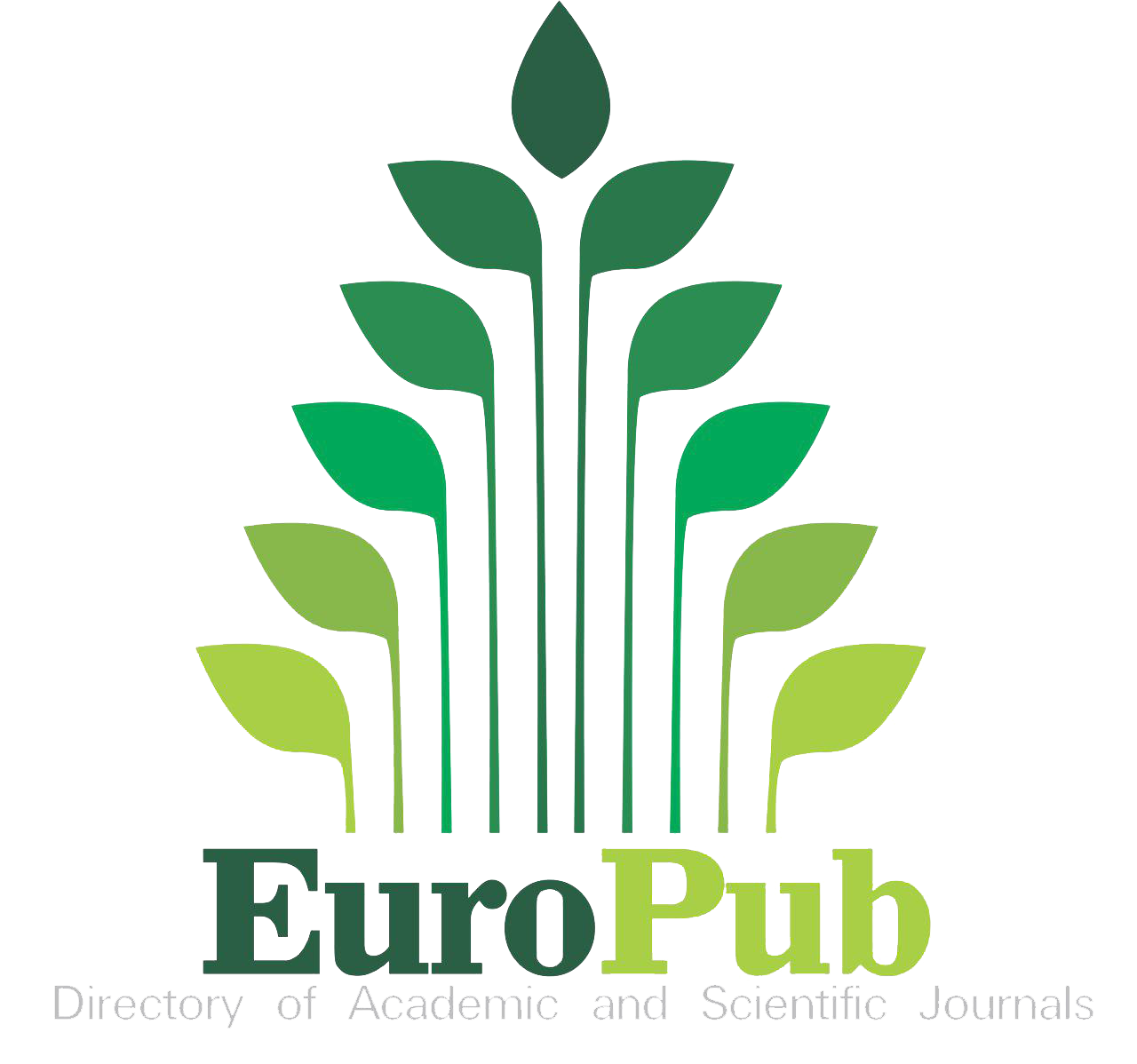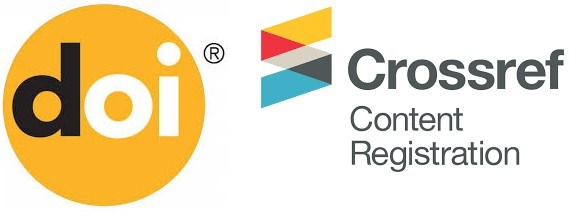Entrenamiento en habilidades sociales en cuidadores informales de pacientes con dependencia alcohólica: Una revisión sistemática
DOI:
https://doi.org/10.29018/issn.2588-1000vol6iss42.2022pp184-202Palabras clave:
entrenamiento en habilidades sociales, cuidadores informales, dependencia alcohólica, psicoterapiaResumen
El alcoholismo es considerado una principal dificultad que atraviesa la sociedad a nivel mundial, por tanto, los cuidadores informales necesitan desarrollar nuevos conocimientos para mejorar la atención y rehabilitación de pacientes con dependencia alcohólica. En la actualidad se usan diversas técnicas psicoterapéuticas como tratamiento de algunos trastornos psicológicos por lo cual, esta investigación pretende analizar la eficacia de la terapia de Entrenamiento en Habilidades Sociales en cuidadores informales de pacientes con dependencia alcohólica. Se realizó una búsqueda en la base de datos: PubMed, PsycInfo, Web of Science, Scopus y Lilacs para identificar artículos publicados en los últimos cinco años, la muestra final analizada estuvo conformada por 10 ensayos clínicos aleatorizados. Los resultados obtenidos favorecen a la evidencia empírica y a una correcta sociabilización en los cuidadores informales para que mencionada terapia sea utilizada por profesionales de la salud mental con el fin de mejorar la interacción entre cuidador y paciente favoreciendo la calidad de vida, disminución de la taza de recaídas y la necesidad de futuras intervenciones en pacientes con problemas de alcohol.
Descargas
Citas
Adamson, S. J., Sellman, J. D., & Frampton, C. M. A. (2009). Patient predictors of alcohol treatment outcome: A systematic review. Journal of Substance Abuse Treatment, 36(1), 75–86. https://doi.org/10.1016/j.jsat.2008.05.007.
Alvarez, A., Habana, L., & Sandoval, F. (2016). Estudio clínico-psicológico de un grupo de pacientes alcohólicos. Revista de Psicoterapia, 14(1), 42–63. https://doi.org/10.1016/j.drugalcdep.2016.01.024.
Armstrong, M., Haighton, C., Davinson, N., & Ling, J. (2018). Interventions to reduce the negative effects of alcohol consumption in older adults: a systematic review. BMC Public Health, 18(1), 465–593. https://doi.org/10.1186/s12889-018-5199-x.
Astoviza, M. B., & Socarrás, M. M. (2017). El alcoholismo, consecuencias y prevención. Revista Cubana de Investigaciones Biomedicas, 22(1), 25–31. https://doi.org/10.1080/16506073.2013.816769.
Borsari, B., Hopkins, L. B., Manuel, J. K., Apodaca, T. R., Mastroleo, N. R., Jackson, K. M., Magill, M., Norona, J. C., & Carey, K. B. (2019). Improvement in therapist skills over sessions in brief motivational interventions predicts client language and alcohol use outcomes.
Psychology of Addictive Behaviors, 33(5), 484–494. https://doi.org/10.1037/adb0000470.
Botvin, G. J., Baker, E., Filazzola, A. D., & Botvin, E. M. (2016). A cognitive-behavioral approach to substance abuse prevention: One-year follow-up. Addictive Behaviors, 15(1), 47–63. https://doi.org/10.1016/0306-4603(90)90006-j.
Bryce, S., Sloan, E., Lee, S., Ponsford, J., & Rossell, S. (2016). Cognitive remediation in addictions: A methodological appraisal of systematic reviews. Journal of Psychiatric Research, 75(32), 91–106. https://doi.org/10.1016/j.jpsychires.2016.01.004.
Charlet, K., & Heinz, A. (2017). Harm reduction-a systematic review on effects of alcohol reduction on physical and mental symptoms. Addiction Biology, 22(5), 1119–1159. https://doi.org/10.1111/adb.12414.
Cohen, J. (1992). A power primer. Psychological Bulletin, 11(2), 1–7. https://doi.org/10.1037/0033-2909.112.1.155.
Connors, G. J., & Walitzer, K. S. (2018). Reducing alcohol consumption among heavily drinking women: Evaluating the contributions of life-skills training and booster sessions. Journal of Consulting and Clinical Psychology, 69(3), 447–456. https://doi.org/10.1037//0022-006X.69.3.447.
Coombes, L., Wood, S., Allen, D., & Moreira, M. (2016). Motivational interviewing for the prevention of alcohol misuse in young adults. The Cochrane Database of Systematic Reviews, 7(7), 541–596. https://doi.org/10.1002/14651858.CD007025.pub4.
Córdova, M. (2015). Dependencia alcoholica-tratamiento psicológico. Revista de Salud Pública, 4(5), 56–60. https://doi.org/10.1016/j.brat.2010.06.002.
Cottencin, O. (2018). Pharmacotherapies and psychotherapies for Alcohol Dependence. Presse Medicale, 47(7), 677–685. https://doi.org/10.1016/j.lpm.2018.07.001.
Coulton, S. (2017). Alcohol misuse. BMJ Clinical Evidence, 20(5), 900–1002. https://doi.org/10.1111/add.12557.
Díaz, S., & Fernández, A. (2016). Integración e interacciones entre los tratamientos farmacológicos y psicológicos de las adicciones: Una revisión. Anales de Psicologia, 29(1), 54–65. https://doi.org/10.6018/analesps.29.1.135131.
Dowal, B. (2012). The guideliness manual NICE: appendices B-I. Behaviour Research and Therapy, 5(3), 1-13. http://dx.doi.org/10.1111/jgs.12768.
Eriksen, L., Björnstad, S., & Götestam, K. G. (2019). Social skills training in groups for alcoholics: One-year treatment outcome for groups and individuals. Addictive Behaviors, 11(3), 309–329. https://doi.org/10.1016/0306-4603(86)90058-4.
Forero, D., & Navarro, J. (2017). Personality traits related to binge drinking: A systematic review. Frontiers in Psychiatry, 8(2), 238–365. https://doi.org/10.3389/fpsyt.2017.00134.
Foy, D., Nunn, L., & Rychtarik, R. (2016). Broad-spectrum behavioral treatment for chronic alcoholics: Effects of training controlled drinking skills. Journal of Consulting and Clinical Psychology, 52(2), 218–230. https://doi.org/10.1037/0022-006x.52.2.218
Greenwald, M. A., Kloss, J. D., Kovaleski, M. E., Pritchard Greenwald, D., Twentyman, C. T., & Zibung-Huffman, P. (2015). Drink refusal and social skills training with hospitalized alcoholics. Addictive Behaviors, 5(3), 227–228. https://doi.org/10.1016/0306-4603(80)90043-X.
Hayley, A., Rebecca, B., Alex, C., Eileen, K., Gilian, T., Raghu, L., Ruth, & McGovern. (2019). The key therapeutic factors needed to deliver behavioural change interventions to decrease risky substance use (drug and alcohol) for looked after children and care leavers: a qualitative exploration with young people, carers and front line workers. BMC Medical Research Methodology, 19(1), 56–69. https://doi.org/10.1186/S12874-019-0674-3.
Källmén, H., Sjöberg, L., & Wennberg, P. (2015). The effect of coping skills training on alcohol consumption in heavy social drinking. Substance Use and Misuse, 38(7), 895–903. https://doi.org/10.1081/JA-120017616.
Kaner, E. F., Beyer, F. R., Muirhead, C., Campbell, F., Pienaar, E. D., Bertholet, N., Daeppen, J. B., Saunders, J. B., & Burnand, B. (2018). Effectiveness of brief alcohol interventions in primary care populations. Cochrane Database of Systematic Reviews, 2018(6), 45–96. https://doi.org/10.1002/14651858.CD004148.pub4
Kattimani, S., & Bharadwaj, B. (2013). Clinical management of alcohol withdrawal: A systematic review. Industrial Psychiatry Journal, 22(2), 100–210. https://doi.org/10.4103/0972-6748.132914.
Klimas, J., Fairgrieve, C., Tobin, H., Field, C. A., O’Gorman, C. S. M., Glynn, L. G., Keenan, E., Saunders, J., Bury, G., Dunne, C., & Cullen, W. (2018). Psychosocial interventions to reduce alcohol consumption in concurrent problem alcohol and illicit drug users. Cochrane Database of Systematic Reviews, 2018(12). https://doi.org/10.1002/14651858.cd009269.pub4.
Levola, J., Kaskela, T., Holopainen, A., Sabariego, C., Tourunen, J., Cieza, A., & Pitkänen, T. (2014). Psychosocial difficulties in alcohol dependence: a systematic review of activity limitations and participation restrictions. Disability and Rehabilitation, 36(15), 1227–1239. https://doi.org/10.3109/09638288.2013.837104.
Morris, H., Larsen, J., Catterall, E., Moss, A., & Dombrowski, S. (2020). Peer pressure and alcohol consumption in adults living in the UK: a systematic qualitative review. BMC Public Health, 20(1), 56–89. https://doi.org/10.1186/S12889-020-09060-2.
Newbury, D., Ferguson, J., Landale, S., Giles, E., McGeechan, G., Gill, C., Stockdale, K., & Holloway, A. (2018). A systematic review of the efficacy of alcohol interventions for incarcerated people. Alcohol and Alcoholism, 53(4), 412–425. https://doi.org/10.1093/alcalc/agy032.
OMS. (2018). Alcohol y salud pública. Revista Iberoamericana de Psicología, 14(4), 16–26. https://doi.org/10.1016/j. janxdis.2014.03.002.
Öst, L. G. (2008). Efficacy of the third wave of behavioral therapies: a systematic review and meta-analysis. Behaviour Research and Therapy, 46(3), 296–321. https://doi.org/10.1016/J.brat.2007.12.005.
Paranjothy, S., Hurt, L., Mann, M., Farewell, D., & Kemp, A. (2016). Objective Measures of Prenatal Alcohol Exposure: A Systematic Review. Pediatrics, 138(3), 500–960. https://doi.org/10.1542/peds.2016-0517.
Petrie, B., Bunn, F., & Byrne, G. (2007). Parenting programmes for preventing tobacco, alcohol or drugs misuse in children. Health Education Research, 22(2), 177–191. https://doi.org/10.1093/her/cyl061.
Prieto, M., Baena, B., Caperos, J., Falcón, C., & Olivares, J. (2020). Alcohol consumption in adolescents: The predictive role of drinking motives. Psicothema, 32(2), 189–196. https://doi.org/10.7334/psicothema2019.263.
Rehm, J., Gmel, G. E., Gmel, G., Hasan, O. S. M., Imtiaz, S., Popova, S., Probst, C., Roerecke, M., Room, R., Samokhvalov, A. V., Shield, K. D., & Shuper, P. A. (2017). The relationship between different dimensions of alcohol use and the burden of disease—an update. Addiction, 112(6), 968–1001. https://doi.org/10.1111/add.13757.
Rosenthal, A., Lohoff, W., Heinz, A., & Beck, A. (2018). Imaging resilience and recovery in alcohol dependence. Addiction, 113(10), 1933–1950. https://doi.org/10.1111/add.14259.
Saitz, R. (2010). Alcohol screening and brief intervention in primary care: Absence of evidence for efficacy in people with dependence or very heavy drinking. Drug and Alcohol Review, 29(6), 631–640. https://doi.org/10.1111/J.1465-3362.2010.00217.X.
Samokhvalov, A., Popova, S., Room, R., Ramonas, M., & Rehm, J. (2011). Disability associated with alcohol abuse and dependence. Alcoholism Clinical and Experimental Research, 34(11), 1871–1878. https://doi.org/10.1111/J.1530-0277.2010.01275.X.
Sánchez, E., Tomás Gradolí, V., & Marales Gallús, E. (2019). Un modelo de tratamiento psicoterapéutico en adicciones. Trastornos Adictivos, 6(3), 159–166. https://doi.org/10.1016/s1575-0973(04)70159-2.
Schuckit, A. (2006). Comorbidity between substance use disorders and psychiatric conditions. Addiction (Abingdon, England), 10(1), 76–88. https://doi.org/10.1111/j.1360-0443.2006.01592.x.
Shea, B. J. (2007). Development of AMSTAR: a measurement tool to assess the methodological quality of systematic reviews. BMC Medical Research Methodology, 7(10), 7–10. https://doi.org/10.1186/1471-2288-7-10.
Shorter, G. W., Bray, J. W., Giles, E. L., O’donnell, A. J., Berman, A. H., Holloway, A., Heather, N., Barbosa, C., Stockdale, K. J., Scott, S. J., Clarke, M., & Newbury-Birch, D. (2019). The variability of outcomes used in efficacy and effectiveness trials of alcohol brief interventions: A systematic review. Journal of Studies on Alcohol and Drugs, 80(3), 286–298. https://doi.org/10.15288/jsad.2019.80.286.
Stockings, E., Lynskey, M., Morley, K., Reavley, L., Strang, J., & Patton, G. (2016). Prevention, early intervention, harm reduction, and treatment of substance use in young people. The Lancet Psychiatry, 3(3), 280–296. https://doi.org/10.1016/S2215-0366(16)00002-x.
Svanberg, J., & Evans, J. J. (2013). Neuropsychological Rehabilitation in Alcohol-Related Brain Damage: A Systematic Review. Alcohol and Alcoholism, 48(6), 704–711. https://doi.org/10.1093/alcalc/agt131.
Swain, J., Hancock, K., Hainsworth, C., & Bowman, J. (2013). Acceptance and commitment therapy in the treatment of anxiety: a systematic review. Clinical Psychology Review, 33(8), 965–978. https://doi.org/10.1016/J.CPR.2013.07.002.
Thush, C., Wiers, R. W., Theunissen, N., Van den Bosch, J., Opdenacker, J., van Empelen, P., Moerbeek, M., & M. Feron, F. J. (2018). A randomized clinical trial of a targeted intervention to moderate alcohol use and alcohol-related problems in at-risk adolescents. Pharmacology Biochemistry and Behavior, 86(2), 368–376. https://doi.org/10.1016/j.pbb.2006.07.023.
Treanor, C., O’Reilly, D., & Donnelly, M. (2018). Evaluation of the psychometric properties of self-reported measures of alcohol consumption: a systematic review. Psicothema, 13(1), 456–789. https://doi.org/10.1186/s13011-018-0143-8.
Valencia, C. (2016). Alternativas psicoterapéuticas efectivas en el tratamiento del paciente alcohólico. Revista Iberoamericana de Psicología, 5(4), 12–85. https://doi.org/10.1016/j.jbtep.2011.09.109.
Vettore, M. V., & Leão, A. (2009). The relationship of alcohol dependence and alcohol consumption with periodontitis: A systematic review. Journal of Dentistry, 37(9), 643–651. https://doi.org/10.1016/j.jdent.2009.04.011.
Walitzer, K. S., Deffenbacher, J. L., & Shyhalla, K. (2015). Alcohol-Adapted Anger Management Treatment: A Randomized Controlled Trial of an Innovative Therapy for Alcohol Dependence. Journal of Substance Abuse Treatment, 59(36), 83–93. https://doi.org/10.1016/j.jsat.2015.08.003.
Zambrano, S., Bastidas, E., & Córdova, E. (2017). Consumo de alcohol en estudiantes universitarios colombianos. Universidad y Salud, 19(1), 37–89
Descargas
Publicado
Cómo citar
Número
Sección
Licencia
Derechos de autor 2022 Los autores mantienen los derechos sobre los artículos y por lo tanto son libres de compartir, copiar, distribuir, ejecutar y comunicar públicamente el trabajo en sus sitios web personales o en depósitos institucionales, luego de su publicación en esta revista, siempre y cuando proporcionen información bibliográfica que certifique su publicación en esta revista.

Esta obra está bajo una licencia internacional Creative Commons Atribución-NoComercial 4.0.



























